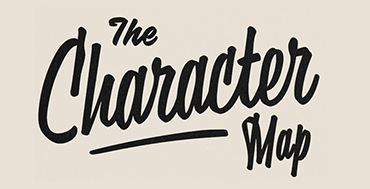Star Trek 2009 – Spot On Character Types


Yes, the slick production values and special effects wizardry are important to the film’s success, but the new envisioning of the story ultimately succeeds because the characters are so true to the original. The creative team took the established Character Type of each well-loved individual and then wrote a younger version of the type. For example:
James T. Kirk is a quintessential Power of Idealism character. This Character Type is the angry rebellious young man or the passionate idiosyncratic young woman in a Coming of Age Story. Star Trek is fundamentally a Coming of Age story. Although it features a strong ensemble cast, it is primarily the story of how Kirk becomes Captain of the Enterprise and assembles his famous crew.
Power of Idealism Coming of Age stories are about the struggle to grow up, distinguish one’s self as an extraordinary individual and find a place in a world where, at the beginning, the young person just doesn’t seem to fit.
We first meet young Kirk in an act of rebellion. He is a pre-teen speed demon racing down an Iowa road. Kirk grows up to be an intelligent, rebellious and somewhat cynical, young man. He is out of place in the flat Iowa landscape and hangs out at a bar near the Starfleet Academy.
When Kirk takes on a group of young Starfleet Cadets in a bar fight over a girl (Uhura), Captain Christopher Pike recognizes him as the son of an old friend. He challenges Kirk to do something “special and extraordinary” with his life. Kirk, as a Power of Idealism character, cannot help but rise to challenge of a higher calling.
Kirk is determined to distinguish himself in the Academy by beating a test Spock devises. After Captain Pike tells Kirk he could be a Captain in 4 years, Kirk responds to in typical Power of Idealism fashion:
Kirk: I’ll do it in three.
In fact, he earns his Captain’s Chair in the space of a single mission. He cements his place as a legend in the Federation and begins his extraordinary mission to “go where no one has gone before.”
The Power of Idealism eBook describes in-depth how these Character Types are defined in their youth and the book specifically describes and quotes at length how James T. Kirk is defined as an adult in the television series.
Young Spock is a spot on Power of Reason character. These characters play the role of the expert, the technician, the problem-solver, the diagnostician or the analyst in a story. They dominate a story situation by force of their special expertise, independent thinking, superior knowledge, keen analysis and cool self-sufficient self-containment. They are inherently socially awkward, aloof, shy or superior. They dislike or disdain what they would term excessive emotion.
The following exchange with Bones demonstrates Spock’s character:
Leonard ‘Bones’ McCoy: Are you out of your Vulcan mind? Are you making a logical choice, sending Kirk away? Probably. But, the right one? You know, back home we have a saying: “If you wanna ride in the Kentucky Derby, you don’t leave your prized stallion in the stable.”
Spock: A curious metaphor, doctor, as a stallion must first be broken before it can reach its potential.
Leonard ‘Bones’ McCoy: My God, man, you could at least ‘act’ like it was a hard decision…
Spock: I intend to assist in the effort to reestablish communication with Starfleet. However, if crew morale is better served by my roaming the halls weeping, I will gladly defer to your medical expertise. Excuse me.
Leonard ‘Bones’ McCoy: (as Spock leaves) Green-blooded hobgoblin.
The Power of Reason eBook describes in-depth how these Character Types are defined in their youth and the book specifically describes and quotes Spock as an adult in the television series.
Leonard ‘Bones’ McCoy is a Power of Truth character. These characters believe danger and disaster potentially lurk everywhere. They wary and skeptical. They are often the voice of potential doom and gloom. This exchange with Kirk demonstrates Bones’ character and his view of the world.
Leonard ‘Bones’ McCoy: One tiny crack in the hull and our blood boils in thirteen seconds. Solar flare might crop up, cook us in our seats. And wait till you’re sitting pretty with a case of Andorian shingles, see if you’re so relaxed when your eyeballs are bleeding. Space is disease and danger wrapped in darkness and silence.
Kirk: Well, I hate to break this to you, but Starfleet operates in space.
Leonard ‘Bones’ McCoy: Yeah. Well, I got nowhere else to go, the ex-wife took the whole damn planet in the divorce. All I got left is my bones.
The Power of Truth eBook describes in-depth how these Character Types are defined in their youth and as an adult.
The clarity and consistency of the characters are what make this summer’s Star Trek such an enjoyable voyage. A final thought– “Nature magically suits a man to his fortunes, by making them the fruit of his character.” Ralph Waldo Emerson



Create a visual map for a character’s emotional journey. Pull stories from character rather from rote story structure beats. Some of the largest international media companies, use this in story and character development.


A clear concise guide for writers and producers to have by their side as they embark on a project. It gives a really vital reminder of what is key for story success.

No comment yet, add your voice below!